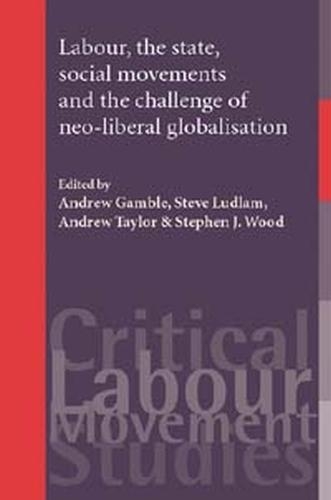
Labour, the State, Social Movements and the Challenge of Neo-Liberal Globalisation
(Hardback)
Publishing Details
Labour, the State, Social Movements and the Challenge of Neo-Liberal Globalisation
By (Author) Andrew Gamble
Edited by Steve Ludlam
Edited by Andrew Taylor
Edited by Stephen Wood
Manchester University Press
Manchester University Press
27th April 2007
United Kingdom
Classifications
Physical Properties
Hardback
256
Width 156mm, Height 234mm
Description
With the emergence of neo-liberalism in the 1980s as the dominant domestic and international political-economic orthodoxy, labour as both a social category and political movement tended to be written off or ignored by academics, politicians and commentators. However, at a time when the world's working class is growing faster than at any previous time in history and neo-liberalism is widely challenged, this orthodoxy is clearly inadequate. The spread of global production means that to ignore labour, its organisations, interests and politics, is to ignore one of the key components of that process. Labour organisations have not gone away and neither has the state: their relationship remains as significant as ever. The strategic relationship between trade unions and social movements, nationally and internationally, has also developed markedly, especially in the south. New patterns of resistance are emerging to challenge global capital and those who assert that globalisation is irresistible. -- .
Author Bio
Andrew Gamble is Professor of Politics at the University of Sheffield. Steve Ludlam is Senior Lecturer in Politics at the University of Sheffield Andrew Taylor is Professor of Politics at the University of Sheffield Stephen Wood is Professor of Work Psychology and Deputy Director of the Institute of Work Psychology at the University of Sheffield
